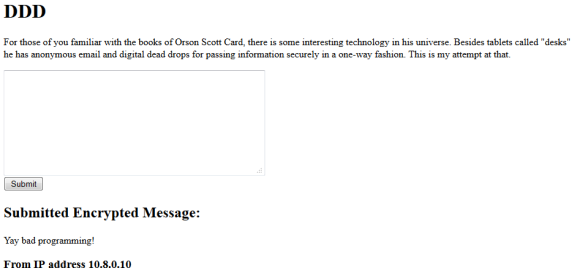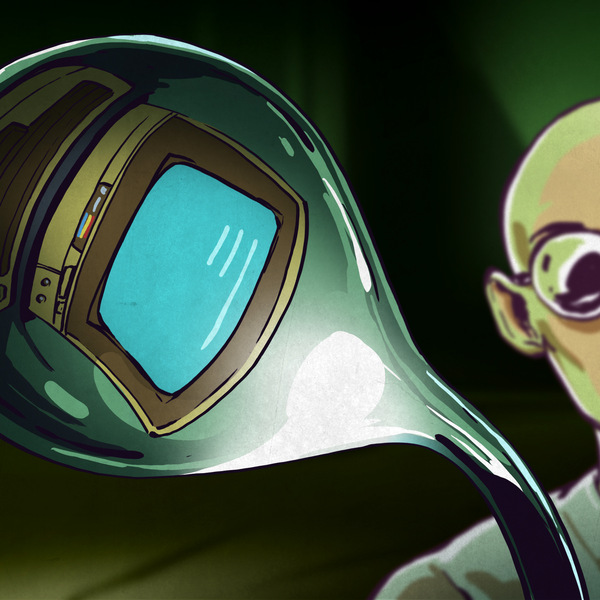
[Tyler Spilker’s] DDD project is a Digital Dead Drop system based on Python and a Raspberry Pi as a server. It’s pretty rough around the edges at this point — which he freely admits. But we like the concept and figure it might spark an interesting conversation in the comments section.
Now by far our favorite dead drop concept is this USB drive lewdly sticking out of a brick wall. But you actually need to be on-site where this drive is mortared into the wall in order to access it. [Tyler] instead developed a webpage that gives him a text box to enter his messages. These are encrypted using key pairs and pushed to his remote RPi server. This way he can write down his thoughts knowing they’re stored securely and never in danger of being accessed from a lost or stolen cellphone.
If free thought isn’t what you’re trying to transfer from one place to another you probably want something like a Pirate Box.















Well? We’re waiting…
No you’re not. We don’t monitor this site.
IP for above comment is in Alexandria, VA. Checks out, guys.
Why go to all this bother when any free webmail with a drafts folder will work as a dead drop? Just put PGP encrypted text into a draft message and all your pals with the login info and the PGP key can access it.
Sending e-mail without actually sending it.
Unless you’re the director of the CIA trying to hide your affair.
@szczys you should have pointed out that the author uses a VPN, and since this project is server side encyption it is necessary.
Anyone actually use dead drops? I find them to be on legit par with glory holes. No thanks. Not trying to be a negative nancy it just seems problematic to begin with depending on use.
So this is an anonymous, encrypted, pastebin-like?
Look for ZeroBin from sebsauvage instead :)
Quantum computers can theoretically brute force common public key cryptography. PGP will soon be obsolete if it isn’t already.
Bruce Schneier talks about it at Defcon 20 here: https://www.youtube.com/watch?v=59blKN–J_E&t=3m5s